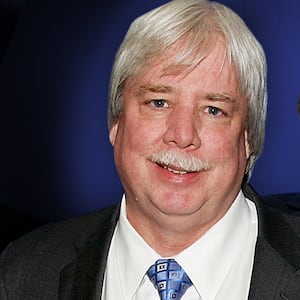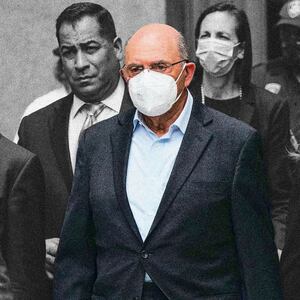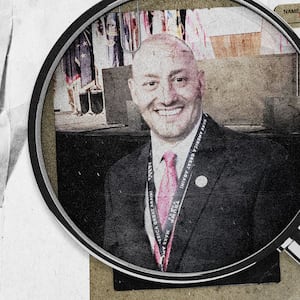Prosecutors have discovered a tranche of evidence in the basement of a co-conspirator in the Trump Organization tax fraud case, a defense lawyer for indicted chief financial officer Allen Weisselberg revealed in court on Monday, with the attorney also signaling that more shoes are yet to drop in New York’s ongoing investigation.
“We have strong reason to believe there could be other indictments coming,” Weisselberg’s lawyer, Bryan C. Skarlatos, said in Manhattan criminal court on Monday.
Skarlatos also referenced a private conversation that Weisselberg—along with his defense lawyers and prosecutors—had with the judge before proceedings were open to the public, revealing that prosecutors had discovered tax documents related to Donald Trump’s company in the basement of an unnamed co-conspirator.
It’s unclear who that co-conspirator might be, but according to two sources close to the investigation, prosecutors have been more closely scrutinizing Matthew Calamari, a Trump bodyguard who rose through the ranks to become the company’s chief operating officer. Others have theorized that it might be Jeff McConney, the company controller who has long served as Weisselberg’s deputy—and who has already testified before the grand jury.
Weisselberg and the Trump Organization were indicted on June 30 in New York State court and charged with criminal tax fraud, falsifying business records, grand larceny, and scheming to defraud the government. In the indictment, prosecutors alleged that the Trump Organization ran a 15-year scheme in which it paid high-level executives a huge chunk of their real salaries “off the books.”
Such a scheme, in theory, would benefit the company because it could give officers perks in place of wage increases to avoid payroll taxes.
The indictment is the culmination of a three-year investigation by the office of Manhattan District Attorney Cy Vance, who has since joined forces with New York Attorney General Letitia James. Both are trying to nail Trump, his company, and his officers for allegedly bogus real estate valuations and tax dodging.
Weisselberg isn't the only executive on investigators’ radar, but one who has been criminally charged thus far. The indictment described him as “one of the largest individual beneficiaries” of the supposed tax-dodging scheme, having allegedly hidden $1.76 million in “indirect employee compensation” he received from the Trump Organization from 2005 until 2017.
At Monday’s hearing, Weisselberg’s lawyers tried to push back an eventual trial, asking for significantly more time to review what they determined to be more than 3 million documents that have been identified as evidence in this case. The state judge presiding over the case, Justice Juan Merchan, agreed to slow down the pace of the court case and tentatively scheduled a trial for sometime in August or September of next year.
In court, Skarlatos expressed concern that his client would become "collateral damage” in a fight between the Trump Organization and the DA.
But Manhattan assistant district attorney Solomon Shinerock told the judge that Weisselberg “is not an innocent party caught up on collateral damage here.” He noted that this is a pretty clear case of "executives hiding their compensation in order to avoid their tax obligations" and that "Allen Weisselberg is no stranger to these documents” because "Mr. Weisselberg is the boss."
Skarlatos and Weisselberg’s other lawyer, Mary E. Mulligan, issued a statement during the court hearing that said: “We have studied the indictment and it is full of unsupported and flawed factual and legal assertions regarding Allen Weisselberg. We look forward to challenging those assertions in court.”
But that trial might not happen if prosecutors get their way. Three sources close to the investigation say that prosecutors are actually trying to flip him as a witness against their real target: his long-time boss, former president Trump.









